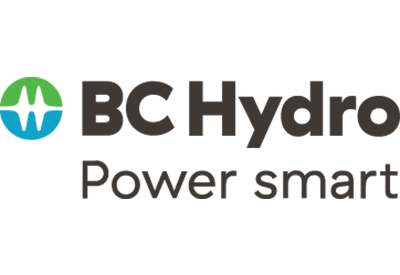Province and BC Hydro Recommendations to help Drivers go Electric

October 1, 2021
The Province and BC Hydro have released recommendations from Phase 2 of the BC Hydro Review to get more electric vehicles on the road.
“British Columbia’s abundant, reliable and affordable clean electricity makes switching to an electric vehicle a sustainable choice that can save people and businesses money in fuel costs, and help them reduce their carbon footprint,” said Bruce Ralston, Minister of Energy, Mines and Low Carbon Innovation. “Recommendations from Phase 2 of our BC Hydro Review propose optional rates and innovative new solutions and programs that will make it easier and more affordable for drivers to go electric.”
With a history of investment and forward-looking policy in clean transportation, B.C. is already a leader in electric vehicles (EVs) with the highest EV adoption rate in North America in 2020, and one of the largest public charging networks in Canada.
Working together with BC Hydro and other delivery partners, the Province supports the uptake of EVs through a number of streams, including point-of-purchase vehicle rebates, home and workplace charging rebates, funding for public charging stations, commercial vehicle and fleet programs, rebates for specialty-use low-speed and utility vehicles, and funding to upgrade electrician and automotive technician training to incorporate EVs and charging infrastructure.
Guided by input from a panel of external energy industry experts, government and BC Hydro have developed recommendations under Phase 2 of the BC Hydro Review that will build on that work to further increase the adoption of EVs in B.C.
“Our government is working so people and businesses can continue to make the switch to electric vehicles and reduce pollution in communities through our CleanBC plan,” said George Heyman, Minister of Environment and Climate Change Strategy. “These recommendations can make EVs more affordable and convenient through new electricity rates and further expand our fast-charging network to address our biggest sources of greenhouse gas emissions. In addition, they could significantly reduce emissions from medium- and heavy-duty vehicles.”
Recommendations include proposals for new optional rates to lower the cost of charging EVs at home or at the workplace, considering measures to help middle- to lower-income households get into an EV, plans for the deployment of more public fast-charging stations, and the development of a medium- and heavy-duty vehicle low-carbon fuels/electrification strategy.
In addition to the climate benefits, increasing the use of EVs will also increase BC Hydro’s electricity sales and revenues, helping to keep rates affordable for everyone.
“As the primary ‘fuel provider’ for British Columbia’s growing number of EV drivers, BC Hydro is proud to partner with government and other organizations to deliver the CleanBC Go Electric program,” said Chris O’Riley, president and CEO, BC Hydro. “Recommendations from Phase 2 of the BC Hydro Review, combined with our incoming five-year electrification plan, will build on our collaborative efforts and successes and help more and more people and businesses realize the benefits of switching to electric vehicles.”
Previous announcements on Phase 2 of the BC Hydro Review in July and August 2021 focused on achieving CleanBC climate targets and supporting clean economic development, and keeping rates affordable.
In addition, as part of the Draft Action Plan to advance the Declaration on the Rights of Indigenous Peoples Act, the Province will, in collaboration with the First Nations Leadership Council and First Nations Energy and Mining Council, be launching an engagement with First Nations this year to identify and support new clean-energy opportunities for Indigenous peoples related to CleanBC, the BC Hydro Review and the British Columbia Utilities Commission Inquiry on Indigenous Utilities.











![Guide to the Canadian Electrical Code, Part 1[i], 26th Edition– A Road Map: Section 56](https://electricalindustry.ca/wp-content/uploads/2022/11/Guide-CE-Code-2.png)



